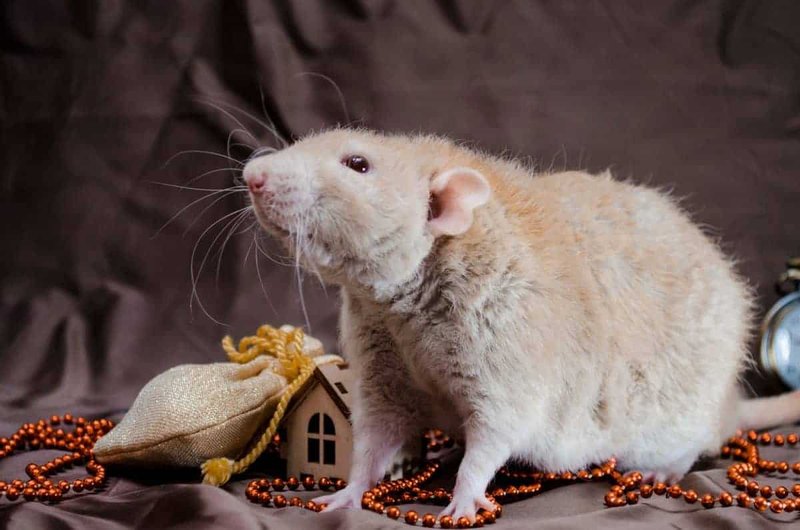
Imagine your Rex rat as a little ball of energy zooming around your home. Just like a toddler, they need the right care, attention, and preventive measures to thrive. Whether you’re a new owner or considering bringing one into your life, knowing about common health concerns can help you act quickly and effectively if any issues arise. So, let’s explore these concerns and some simple prevention tips that can help.
Understanding Respiratory Issues
One of the most common health concerns in Rex rats is respiratory issues. Just like humans, rats can develop respiratory problems from various sources, including poor air quality, stress, or exposure to drafts. If you notice your Rex rat sneezing, wheezing, or showing any signs of difficulty breathing, it’s time to take action.
Here’s the thing: keeping their living space clean and well-ventilated is crucial. You can minimize dust and allergens by using paper-based bedding instead of wood shavings, which can produce irritating particles. Also, avoid smoking or using strong air fresheners around their habitat. Just like us, they thrive better in a comfortable environment!
Additionally, try to provide a warm, cozy spot for them to sleep. Cold drafts can be particularly dangerous. If you’re in a particularly chilly area, consider placing a soft blanket over part of their cage. This simple step can create a warm nook for your Rex rat to snuggle up in.
Dental Health: The Hidden Concern
You might not think about a rat’s teeth very often, but dental health is a significant concern for Rex rats. Their teeth grow continuously throughout their lives, which means they need to chew on the right things to keep them trimmed. If they don’t, they can develop overgrown teeth that can lead to serious eating difficulties or painful abscesses.
Ensure your Rex rat has plenty of safe items to gnaw on. Items like untreated wood blocks, cardboard, or specific chew toys designed for rodents can be very helpful. Honestly, keeping their teeth in check is as easy as providing regular chewing materials. You might even catch them looking quite pleased as they chomp away!
If you notice your rat having trouble eating or if their teeth seem excessively long or misaligned, it’s best to schedule a vet visit. Remember, regular check-ups can help detect dental issues before they become serious problems.
Obesity: A Growing Concern
Obesity is another health issue that frequently affects Rex rats. Just like in humans, being overweight can lead to various health complications. If your rat is constantly looking for snacks or barely moving around, it could be a sign that they’re not getting enough exercise.
Encourage playtime by providing toys and climbing opportunities in their cage. Rex rats love to explore! Also, consider adjusting their diet. Look for a balanced rat food that has the right mix of nutrients, and be mindful of treats. Too many high-calorie treats can quickly lead to weight gain.
Creating a routine where you interact with your Rex rat daily through play or training can help maintain a healthy weight. A little bit of time spent playing each day can keep them happy and fit, which is a win-win for both you and your little friend!
Skin Problems and Parasites
Rex rats are known for their unique, velvety coats, but they can be prone to skin issues as well. You may notice your rat scratching more than usual or losing patches of fur. This could signify parasites, such as mites or fleas, or even skin infections.
Regularly checking your rat’s skin is essential. If you see anything unusual, don’t hesitate to consult your vet. For prevention, keep their living area clean and provide a proper diet to support their skin health. Bathing them occasionally with a gentle, rat-safe shampoo can also help, but always ensure they’re dried properly afterward to prevent chilling.
Additionally, you can create a safe, low-stress environment by handling them gently and providing hiding spots in their cage. A cozy environment supports not just their skin but their overall wellbeing.
Common Behavioral Changes
Sometimes health problems manifest in behavior changes. For instance, if your Rex rat is suddenly more aggressive or displaying signs of lethargy, it could indicate an underlying health issue. Rats are generally social creatures, and a shift in their personality can be a signal that something’s not right.
Pay attention to their behavior. Are they eating less? Spending more time hiding? These can be signs of stress or illness. If you notice significant changes, it’s wise to consult your vet to rule out any potential health concerns.
Creating a safe, enriched environment can also minimize stress. Lots of tunnels, chew toys, and interactive play can help keep your Rex rat’s mind engaged, which can lead to happier, healthier behavior.
Preventive Care: Building a Healthy Routine
Taking care of a Rex rat includes implementing preventive care strategies. Regular vet check-ups are essential to catch any developing health issues early. Your vet can provide vaccinations and general health monitoring, ensuring your rat stays in good shape.
Feeding a balanced diet is key. Choose high-quality rat food that meets their nutritional needs, and add fresh veggies and occasional fruits for variety. Remember, moderation is crucial when offering treats.
Also, ensure they have plenty of exercise. A spacious cage with lots of climbing opportunities will keep your Rex rat busy. The more they move around, the healthier they’ll be. Consider creating obstacle courses or engaging in playtime that encourages them to run and explore.
Caring for your Rex rat involves being aware of the common health concerns they may face and taking proactive steps to ensure their wellbeing. From understanding respiratory issues to monitoring dental health, every little effort counts.
Being observant and responsive to changes in your rat’s behavior is key, too. Remember, prevention is always better than cure. Create a nurturing environment filled with love, play, and proper care, and you’ll be rewarded with a happy, thriving companion. So grab those chew toys, clean their habitat, and enjoy every moment with your little buddy!

